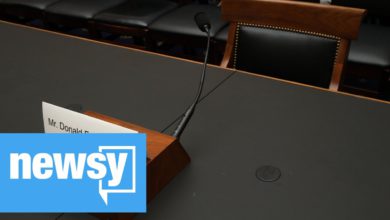
- District of Columbia's Attorney General sued Marriott in 2019 for its use of resort fees.
- Recently-unsealed documents show that Marriott makes millions from resort fees each year.
- Marriott's self-managed resorts make tens of millions from resort fees, according to the lawsuit.
Recently unsealed documents from the District of Columbia Attorney General’s 2019 lawsuit against Marriott allege that the company and its self-managed resorts make tens of millions from resort fees every year.
Marriott itself – which operates and franchises more than 7,000 properties and 30 brands across the globe– made approximately $17 million from resort fees in 2019, according to a motion for summary judgment. Its self-managed resorts made $66 million in 2012, $82 million in 2013 and $58 million through half of 2014 from the fee, the lawsuit filing says.
Resort fees, also referred to as "destination fees" or "amenity fees,"have become a common practice among hotel operators since their inception in the late 1990s. The additional costs are said to cover additional services such as Wi-Fi, parking or pool and gym access – standard resort features that previously did not carry extra charges.
The fees can be upwards of $40 a night in major vacation destinations including Las Vegas, Phoenix and Florida, and are among the top fees hotel guests love to hate.

'We wanted to have profit'
The lawsuit, initially filed in the summer of 2019 after an investigation conducted by all 50 state attorneys general, accuses Marriott of taking advantage of consumers by misleading them about room prices.
Marriott declined to comment.
Marriott and other hotel chains do not include the mandatory resort fees in their advertised room rates; the additional charge is only revealed as customers go through the buying process.
The lawsuit accuses Marriott of keeping the fees hidden "solely to increase its profits." Marriott's long-time vice president for guest experience and rooms operations, Jeffrey Wolff, said in his deposition that including resort fees in upfront pricing would "put (Marriott) at a competitive disadvantage."
"We wanted to have profit," Wolff said in one document. He is retired, according to his LinkedIn profile.
► Congress takes on hidden fees at hotels:Here's what it could mean for travelers
► Resort fee lawsuit:DC AG says Marriott's resort fees are deceptive, sues hotel chain
The lawsuit filings shed a light on how lucrative resort fees can be, since they typically aren’t broken out in companies' filings with the U.S. Securities and Exchange Commission.
"Our complaint alleges bait-and-switch advertising and deceptive pricing practices, which are illegal,” Marrisa Geller, press secretary for the Office of the D.C. Attorney General Karl Racine, said in a Tuesday statement. "We’re working to hold Marriott accountable and force the company to change its practices so consumers know the price they are paying."
Guests frustrated with 'lack of transparency'
Other hotel chains have been under fire in recent years for their use of resort fees.
The Federal Trade Commission warned 22 hotels – including Marriott – in 2012 that resort fees may violate the law by misrepresenting hotel room costs and encouraged hotels to review the price listings on their websites.
Nebraska Attorney General Doug Peterson also filed a lawsuit against Hilton in 2019 for its use of resort fees. MGM Resorts International, which operates hotel-casinos along the Las Vegas Strip, was sued by Travelers United, a nonprofit travel advocacy group, for its use of resort fees earlier this year.

Marriott obtained market research in December 2015 that shows guests' number-one complaint with resort fees was a "lack of transparency," according to lawsuit filings. An audit of the company's hotels that year found resort fees were not disclosed at the time of reservation 33% of the time.
"The price that Marriott first advertises on its website and on (online travel agencies') websites is deceptive, because no consumer can actually reserve the room for that price," the attorney general’s lawsuit reads.
The research also found 80% of customers wanted hotels to be as transparent as airlines with fee disclosures. Airlines must divulge revenue from baggage fees and cancellation or change fees to the U.S. Department of Transportation's Bureau of Transportation Statistics, and carriers publish those figures quarterly.
Contributing: Dawn Gilbertson, USA TODAY. Follow USA TODAY reporter Bailey Schulz on Twitter: @bailey_schulz.








